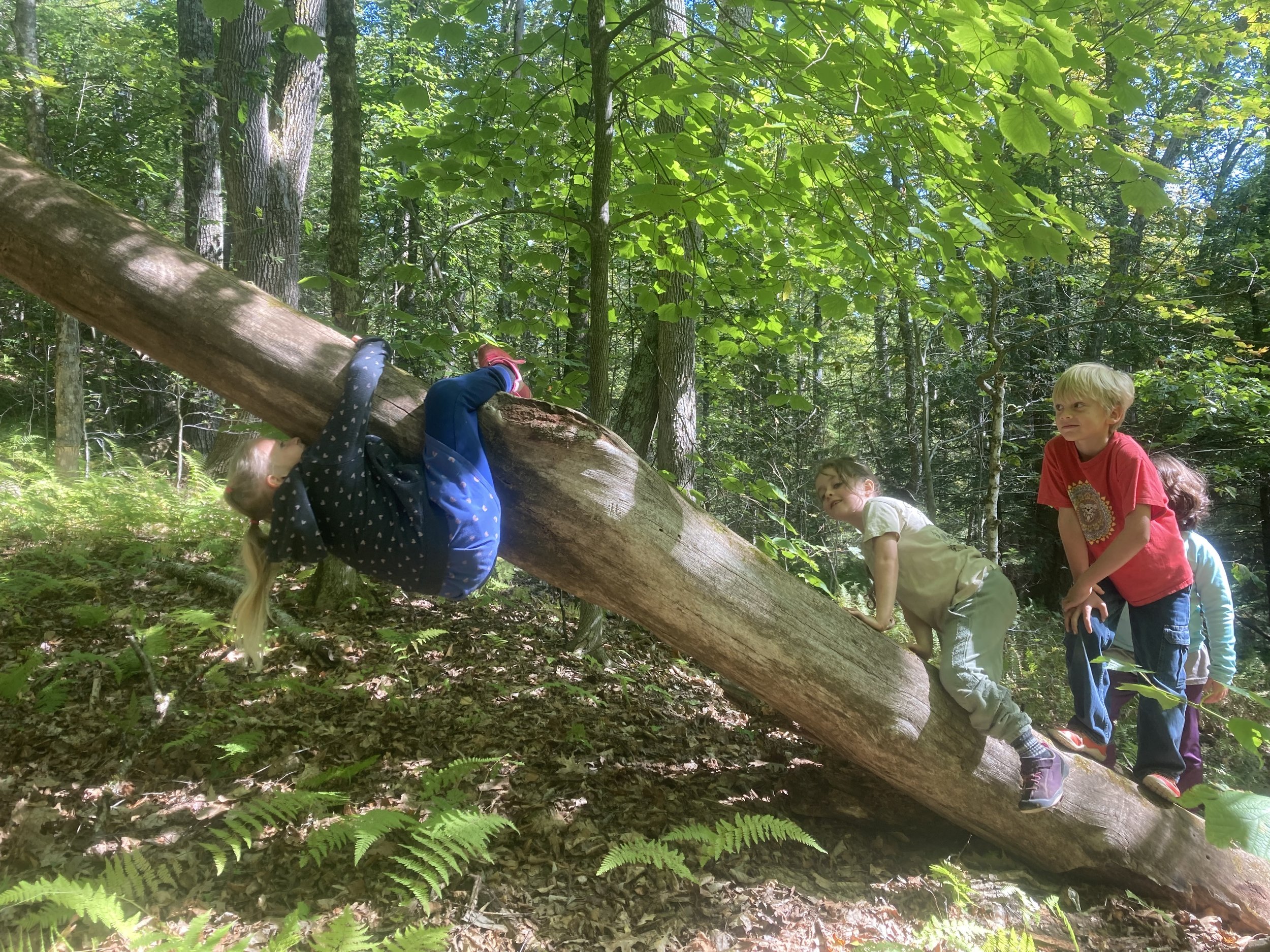Play is the Work of the Child
Most of us who are over 40 were allowed to play outside relatively unsupervised. Adults did not entertain children. Children had their own social lives, not curated by parents. Groups of children roaming around a neighborhood—or forests and fields—was a normal thing and not grounds for a call to the authorities. There was a greater trust in children, and respect for their autonomy—including the right to adventure and experimentation both physically, and in social relations.
Much has changed for the worse. Today, many children have little unstructured time. Multiple factors have brought about this situation: increasing fears for childrens’ safety, traffic, the culture of litigation, an excessive focus on acheivement, long work hours for parents, and screens. The result of these restrictions on childhood are being seen in the well-documented increase in mental illness, obesity, and stress in the lives of children.
Jonathan Haidt’s bestseller The Anxious Generation is currently the best summary of the repercussions of replacing a “play-based childhood” with a “phone based childhood”, and the results are an alarming rise in anxiety and depression in young adults. It’s time to reverse the trend.
At Red Eft Play we have consciously created an environment without technology. Children are outside for five hours a day, exploring and playing in the forest. We have a yurt for rest time, with books, board games, and old-fashioned toys.
As best we can, we have tried to mimic the conditions in which our ancestors raised and educated children: simple, social, and outdoors. We allow for “risky play”, in which children challenge themselves appropriately, while also monitoring for safety. We assume competence, and encourage problem-solving both in social situations, and physical challenges.
We are always open to parents and educators coming to observe. Feel free to arrange a visit by emailing Andrée at redeftplay@gmail.com
Here are some RESOURCES about the science of play, the risks of too much screen-time, and the phenomenon of “nature-deficit disorder”:
Making Playgrounds A Little More Dangerous, NYT
Free To Learn, Peter Gray
Balanced and Barefoot, Angela J. Hanscom
Last Child in the Woods, Richard Louv
The Anxious Generation, Jonathan Haidt


